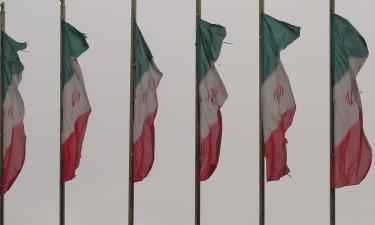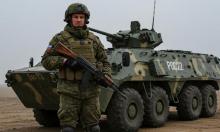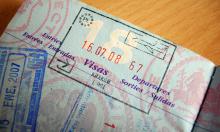Saddam Hussein trial resumes after five-week break; adjourned until Dec. 5
The trial of Saddam Hussein resumed Monday in a heavily guarded courtroom, with the former Iraqi president berating the trial judge and angrily complaining about having to walk up four flights of stairs in shackles under foreign guard. A former U.S. attorney general sat with the defense team.
Other defendants spoke out too, complaining of their treatment in detention or dissatisfaction with their court-appointed counsels.
After a short session in which the first testimony was read into the record, Chief Judge Rizgar Mohammed Amin adjourned the trial until Dec. 5 to allow time to find replacements for two defense lawyers who were slain and another who fled Iraq after he was wounded.
Saddam and his co-defendants are charged in the killings of more than 140 Shiite Muslims after an assassination attempt against the former president in the Shiite town of Dujail in 1982. Convictions could bring a sentence of death by hanging. The former leader pleaded innocent to charges of murder, torture, forced expulsions and illegal detentions at the opening session last month.
Amin had ordered all handcuffs and shackles removed from Saddam and the seven co-defendants before they entered the courtroom. Mortar fire echoed through the center of the capital just before the session began.
Once inside, Saddam had a brief but heated exchange with Amin, complaining of having to walk up four flights of stairs in shackles because the elevator wasn't working.
The judge said he would tell the police not to let that happen again. Saddam snapped: "You are the chief judge. I don't want you to tell them. I want you to order them. They are in our country. You have the sovereignty. You are Iraqi and they are foreigners and occupiers. They are invaders. You should order them."
Saddam also complained he was escorted up the stairs by "foreign guards" and that some of his papers had been taken.
"How can a defendant defend himself if his pen was taken. Saddam Hussein's pen and papers were taken. I don't mean a white paper. There are papers downstairs that include my remarks in which I express my opinion," he said.
Saddam's half brother and fellow defendant Barazan Ibrahim also complained to the judge that he had not received proper medical treatment since being diagnosed with cancer and that this amounted to "indirect murder."
A moment of silence was observed in memory of two defense lawyers assassinated since the trial began. Other defense attorneys were on hand, despite a boycott threat to protest the government's alleged failure to protect them.
Afterward, a videotape obtained from Iraqi intelligence was shown to the court. It depicted Saddam on the streets of Dujail right after the incident in a military uniform, questioning three men held by guards.
Authorities said Sunday that police arrested eight Sunni Arabs for allegedly plotting to kill the judge who prepared Saddam's indictment. The eight were apprehended Saturday in the northern city of Kirkuk, police Col. Anwar Qadir said.
He said they were carrying instructions from a former top Saddam deputy, Izzat Ibrahim al-Douri, ordering them to kill investigating judge Raed Juhi, who prepared the case against Saddam.
Al-Douri is the highest ranking member of the Saddam regime still at large and is believed to be at least the symbolic leader of Saddam loyalists fighting U.S. forces and Iraq's new government.
The predominantly Sunni insurgency has complicated efforts to put Saddam on trial and forced tight security. For example, names of four of the five trial judges have been kept secret and some of the 35 witnesses may testify behind curtains to protect them.
Clark and al-Nueimi flew to Baghdad on Sunday from Amman, Jordan, to lend weight to the defense team. Both have been advising Saddam's lawyers and support their call to have the trial moved out of Iraq.
Clark and others say a fair trial is impossible in Iraq because of the insurgency and because, they argue, the country is effectively under foreign military occupation. U.S. and Iraqi officials insist the trial will conform to international standards, the AP reports.
V.Y.
Subscribe to Pravda.Ru Telegram channel, Facebook, RSS!




